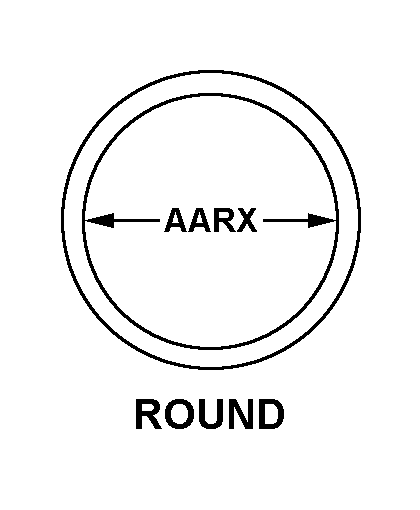4720009254088
Price Quote Get an up to date pricing and availability quote for this product. Order online or over the phone.
Quality Commitment
Serving our customers with quality and safety first.
- AS9120 Certified
- Audited supply chain
- ITAR Registered
- DDTC Registered
- HAZMAT Certified
- Customer service objectives
- Every product 100% inspected

4720-00-925-4088 Specification Set by the OEM (see RNCC code 3)
round
3b 1st end
RIGHT-Hand 1st end
0.298in.
-65.0 deg fahrenheit single response and 400.0 deg fahrenheit single response
0.656in.
5.000in.
mil MIL-H-38360, size 6 specification (includes engineering type bulletins, brochures, etc., that reflect specification type data in specification format; excludes commercial catalogs, industry directories, and similar trade publications, reflecting general type data on certain environmental and performance requirements and test conditions that are shown as "typical", "average", "", etc.) .
swivel nut, flareless 1st end
straight 1st end
complete fitting steel corrosion resisting all ends
complete fitting passivate 1st end
threaded internal tube 1st end
electrostatic discharge capability
identical
14000.0 pounds per square inch
not included
3000.0 pounds per square inch
0.562in. 1st end ⁓1/64"
12.0 degrees 1st end
6000.0 pounds per square inch
corrosion resistant
smooth
15.500in. working
inner conveying tube MATERIAL-Plastic, polytetrafluoroethylene
unjf 1st end
96906-MS27369 government standard
Cross Reference Parts Part numbers that meet the specification outlined on this page and set by the OEM
Identification Item Identification Guide (IIG) and Item Name Code (INC)

Definition Definition of approved item name (AIN): "HOSE ASSEMBLY,NONMETALLIC"
A length of nonmetallic hose with fittings on one or both ends. For items without fittings, see hose, nonmetallic. Excludes hose assembly, air duct; and hose assembly, air duct, air breathing.
4720-00-925-4088 Material Hazmat, Precious Metals, Criticality, Enviroment, and ESD
Indicates there is no data in the hmirs and the nsn is in a fsc not generally suspected of containing hazardous materials.
Precious metal content is unknown
The item does not have a nuclear hardened feature or any other critical feature such as tolerance, fit restriction or application.
Identification Codes
HMIC: Hazardous Material Indicator Code. A one position code that identifies a hazardous item.
PMIC: Precious Metal Indicator Code. A one position code which identifies items that have precious metals as part of their content. precious metals are those metals generally considered to be uncommon, highly valuable, and relatively superior in certain properties such as resistance to corrosion and electrical conductivity.
ESD: Electrostatic Discharge. Indicates if an item is susceptible to electrostatic discharge or electromagnetic interference damage. electrostatic discharge damage occurs when an accumulation of static electricity generated by the relative motion or separation of materials is released to another item by direct contact. electromagnetic interference damage occurs when an item comes into proximity with an electrostatic or magnetic field.
ENAC: Enviromental Attribute Code. Identifies items with environmentally preferred characteristics.
CRITL: Criticality Indicator Code. Indicates an item is technically critical by tolerance, fit, application, nuclear hardness properties, or other characteristics.






